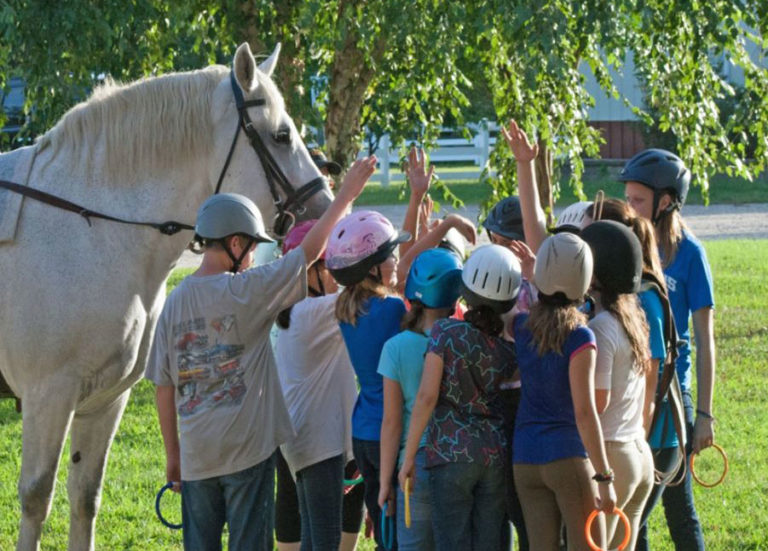Parent Patter: iParenting in the iGeneration
by Sarah Wood
Does this sound familiar? “Mom, can I play my DSI?”, “Dad, can I play the Wii?”, “Mom, can I play that game on the computer”? This is the daily bombardment of “media gripped” questions I get from my gang of three little people who are seven, five, and two. Yes, even my two-year-old asks to play Wii games and watch TV.
As parents, we are asked hundreds of questions on a daily basis. We also face a massive number of decisions that shape our little people’s lives. They begin the moment we wake up. What’s the healthiest breakfast? Is she in the right school? Will she be left behind if I don’t get her the latest tech gadget? Should I let him watch TV or play that video game?
If you are reading this article, you are an ECMS* parent who is already making excellent choices for the growth of your children. The choices we make about technology and media might not be so obvious and can feel a bit daunting. As a mother and an educator, I often question if technology will help or hurt them? I think I have figured out the answer for my family.
There is a great deal of debate about the role of technology in child development. From my research, a common theme has emerged: Technology is inevitable in today’s world; children will be exposed to it. With this in mind, the key to parenting when it comes to technology is “balance and timing.” This advice is from Dr. Bruce Perry an expert on brain development in young children. In addition, having firm controls or boundaries and providing a diverse range of activities for your child is paramount. Dr. Perry explains in his article, The Effects of Technology on the Brain that “children need real-life experiences with real people to truly benefit from available technologies. Technology can be used to enhance experiences, but should not be your child’s primary experience.”
How young is too young?
- Unstructured play time is more valuable for the developing brain than electronic media.
- Young children learn best from—and need—interaction with humans, not screens.
- Background media” distract the parent and decrease parent-child interaction.
- Television viewing around bedtime can cause poor sleep habits.
I can proudly say our seven-year-old did not even know the TV existed until he was three. However, this was not the case for our younger children. When there are older siblings in the house, it is hard to prevent little ones from being around the television. In a perfect world my husband and I would crow that our kids don’t watch TV. But they do on occasion, and our two-year-old was introduced to TV earlier than I would like to admit. He also knows how to swipe the screen on my smart phone and will ask for the “choo choo” game, an app that lets kids draw a track on the screen for the train to follow. The guilt always enters my mind when I let him have a little screen time. Generally, however, my hus-band and I limit and control our children’s exposure. We do not use technology as a babysitter. The older kids have very limited use. We don’t bring along the DS everywhere we go, and the kids don’t get to watch movies in the car while we are running errands around town. Screen time is a special privilege in our house, not a regular part of the day.
It takes a lot of effort on our part to not automatically turn on the TV at 6:00 a.m. when our youngest is up and ready for the day. I would love to get a few more minutes of sleep while he watches TV, but it can too easily become a habit. Each of my children can “unplug” and most of the time couldn’t care less if we turn off the TV and unplug the DS. We do get whining and tears from time to time, but I find it ends quickly if I distract them with something more engaging. When they ask “why not?” I’ll say, “Too much TV (computer or DS) will make your brain stop growing; it’s not good for you!”
So, what can we do to avoid the tech trap?
These recommendations are from Kids & Technology: The Developmental Health Debate. First, keep the TV out of children’s bed-rooms. Second, talk about it and engage in “co-viewing”– sitting down with your children while they are playing a game or watching a show and asking questions about it. Third, evaluate appropriate technology by age. A touch pad for drawing shapes and letters is better for your preschooler than an hour of TV. My favorite suggestion is to institute “tech breaks” by setting time limits and specific times to unplug. Finally, set aside “sacred time” when technology is absolutely off limits.
Like other issues we face as parents, choosing technology experiences is another part of parenting. It is an element that requires being selective and vigilant and setting boundaries.
Sarah Wood, M.T. Elementary Education Sarah is an elementary technology teacher in WJCC Schools. She has twelve years com-bined experience in technology and educa-tion.
Sources:
American Academy of Pediatrics. http://www.aap.org/pressroom/mediaunder2.pdf
Scholastic.
http://www.scholastic.com/teachers/article/effects-technology-brain
Buck, Stephanie. Kids & Technology: The Developmental Health Debate http://mashable.com/2011/08/09/kids-tech-developmental-health/*Article was reprinted from the Early Childhood Music School newsletter, November 2011, with the author’s permission.
Special thanks to
Cindy Freeman
Dir. Early Childhood Music School
Assoc. Dir. Music Ministries
cfreeman@williamsburgumc.org
www.williamsburgumc.org
Williamsburg United Methodist Church
500 Jamestown Road
Williamsburg, VA 23185
757-229-1771 Ext 108
Our Early Childhood Music School is a weekday ministry offered at WUMC to members and the community-at-large. The child’s natural musical instincts are nurtured in a positive environment that stresses parental involvement.
- to promote music education as every child’s God-given right.
- to generate enthusiasm for music through repeated, positive experiences.
- to provide holistic education at a time when children are developmentally receptive.
- to create a nurturing environment that enables children.
- to develop physically, intellectually, emotionally, socially and spiritually.
- to affirm and support parents of young children while facilitating positive family interaction.
- singing and chanting
- playing instruments
- movement and dance
- dramatic play and stories
- focused listening
- reading and writing music (beginning at age five or six).
The school is in session mid-September through mid-May. There is also a summer session.






































